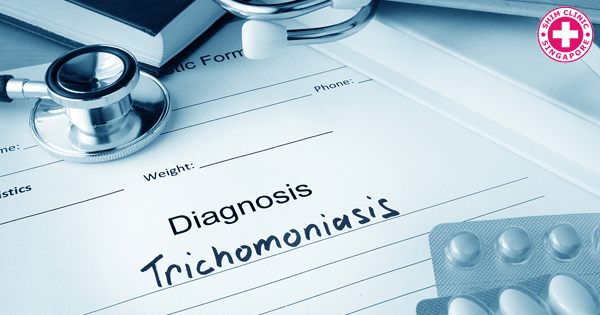What is Trichomoniasis?
Trichomoniasis is a sexually transmitted disease normally referred to as trich. The STD is happens more frequently to young women. The STD is caused by a protozoan known as Trichomonas vaginalis is passed from one infected person to another through sexual contact specifically, vaginal intercourse.
Does the venereal disease have any symptoms?
Trichomoniasis will rarely have symptoms especially in men. However, when they do occur after 3 to 28 days of infection, they are:
In men:
- Frequent passing of urine
- A burning sensation during urination or post-ejaculation
- There may be discharge from the urethra
In women:
- Unpleasant smelling discharge from the vagina which may be yellow, green or gray
- There may be blood spotting in the discharge
- Painful urination or sexual intercourse
- Frequent passing of urine
- Painful genital area
- Vagina may be sore and red in color with an itch
How does one get an STD test for the sexually transmitted disease?
One cannot rely on the symptoms of the disease for diagnosis. Tests will need to be done at an STD testing center or health centers. There are various tests available and they include:
- A sample from the urethra is taken from men or a sample of the vaginal discharge in women and examination is done under a microscope.
- Tests that check the presence of Trichomonas DNA.
- Tests of antigens
- Diagnosis of cell cultures
Who should get tested for the venereal disease?
- Anyone who frequently engages in sexual intercourse and with various sexual partners should test for the infection.
- Also, all women looking to get pregnant should have a Trichomoniasis test before conception.
- An individual who has had sexual contact with an infected person with or without protection should also get tested.
- An individual who is infected should also encourage his/her sexual partner(s) to get testing for the STD.
Is there treatment for Trichomoniasis?
The infected person together with his/her sexual partner can get treatment for the disease. Antibiotics are normally given on prescription. The infected person may be given one of two prescription drugs: metronidazole or tinidazole. The infected person should take the full dose of the prescription so that they can be fully cured. They should also avoid taking alcohol as it causes vomiting. Sexual contact of any nature should also be avoided until the infected person has finished his/her prescription and received a negative STD test.
How can infection of the STD be avoided?
It is important to refrain from all manner of sexual activities for total and complete prevention of a Trichomoniasis infection.
If you do choose to have sexual relations, it is important to use protection at least until you are sure that your sexual partner is free from any STIs and STDs.
People should avoid having too many sexual partners as this is risky in terms of spreading the infection.
In case the infection is not treated, what happens?
If the Trichomoniasis is not treated, it increases the risk of infection of other STDs such as HIV. The infection in a woman increases the chance of her spreading an HIV infection. If you suspect that you might have exposed to HIV within the last 72 hours, talk to your doctor about HIV post-exposure prophylaxis therapy to prevent yourself from becoming HIV-positive.
In the case of infection, in a pregnant woman, it may cause early delivery with the baby having low birth weight.

